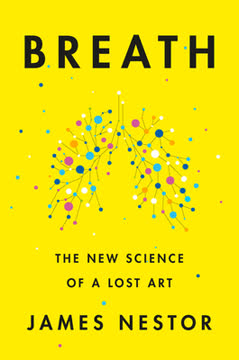Key Takeaways
1. Meditation: The Foundation for Transforming Your Mind
"All that we are is the result of what we have thought: we are formed and molded by our thoughts."
Meditation as mind training. Regular meditation practice is the cornerstone for transforming one's mind and life. It allows us to gain control over our thoughts, emotions, and reactions, leading to greater peace and clarity.
Benefits of consistent practice:
- Improved concentration and focus
- Reduced stress and anxiety
- Enhanced emotional regulation
- Increased self-awareness
- Greater sense of inner peace
Practical tips for meditation:
- Choose a regular time and place
- Start with short sessions and gradually increase duration
- Use an inspirational passage or mantram as a focus
- Be patient and persistent, even when facing distractions
2. Overcoming the Five Obstacles to Inner Peace
"Sensuality, ill will, laziness, restlessness, and anxiety or fear."
Understanding inner obstacles. The Buddha identified five main hindrances to spiritual growth and inner peace. Recognizing and addressing these obstacles is crucial for progress in meditation and personal development.
Strategies for overcoming obstacles:
- Sensuality: Practice moderation and mindful consumption
- Ill will: Cultivate compassion and forgiveness
- Laziness: Set clear goals and maintain regular practice
- Restlessness: Channel energy into purposeful activities
- Anxiety/fear: Develop trust in the spiritual process and one's inner strength
Practical applications: Apply these strategies in daily life situations, such as work, relationships, and personal habits. Regular reflection and mindfulness help identify when these obstacles arise, allowing for conscious efforts to overcome them.
3. Detachment: The Key to True Love and Fulfillment
"Renounce and enjoy!"
Understanding detachment. Contrary to popular belief, detachment is not about being cold or unfeeling. It's about freeing oneself from unhealthy attachments to outcomes, possessions, and even people, allowing for genuine love and joy to flourish.
Benefits of practicing detachment:
- Reduced stress and anxiety
- Improved relationships
- Greater emotional resilience
- Increased capacity for genuine love and compassion
- Enhanced ability to enjoy life's experiences without clinging
Cultivating detachment: Start by observing your thoughts and emotions without judgment. Practice letting go of expectations and the need to control outcomes. Focus on giving and serving others without expecting anything in return.
4. Harnessing Desire for Spiritual Growth
"If you want to grow to our fullest human stature, the Buddha would say, all we have to do is teach the mind how to think differently: how to be calm, kind, and creative in any situation."
Redirecting desire. Instead of suppressing desires, spiritual growth involves channeling them towards higher goals. This process transforms our energy from self-centered pursuits to selfless love and service.
Steps to harness desire:
- Recognize the nature of unfulfilling desires
- Identify higher aspirations aligned with spiritual growth
- Gradually shift focus and energy towards these higher goals
- Use meditation and mindfulness to strengthen this redirection
Practical applications: Apply this principle to various aspects of life, such as career goals, relationships, and personal development. Regularly reflect on your motivations and adjust your actions to align with higher purposes.
5. Discrimination: Making Wise Choices in Daily Life
"Which is preya, that which pleases, and which is shreya, the long-term good?"
Cultivating wisdom. Discrimination involves distinguishing between immediate pleasures (preya) and long-term benefits (shreya). This skill is essential for making choices that lead to lasting happiness and fulfillment.
Areas for applying discrimination:
- Food and nutrition
- Entertainment and media consumption
- Relationships and social interactions
- Career and life decisions
- Use of time and resources
Developing discrimination: Practice mindfulness in daily choices. Regularly reflect on the consequences of your actions. Seek guidance from spiritual teachings and wise individuals. Cultivate a long-term perspective on life.
6. The Power of Determination in Spiritual Practice
"Those who have this determination have nothing to fear."
Unwavering commitment. Determination is the driving force behind spiritual progress. It helps overcome obstacles, maintain regular practice, and persist through challenges on the spiritual path.
Cultivating determination:
- Set clear spiritual goals
- Establish a regular meditation practice
- Overcome excuses and distractions
- Learn from setbacks and persevere
- Surround yourself with supportive people and environments
Practical tips: Start each day by reaffirming your spiritual commitment. When faced with challenges, remind yourself of your deeper motivations. Celebrate small victories to maintain momentum.
7. Cultivating Inner Resources for Lasting Happiness
"Nature's purpose is neither food, nor drink, nor clothing, nor comfort, nor anything else from which God is left out."
True wealth is within. Genuine fulfillment comes from developing inner resources such as love, compassion, and wisdom, rather than accumulating external possessions or experiences.
Developing inner resources:
- Regular meditation and spiritual practice
- Self-reflection and introspection
- Studying spiritual teachings and wisdom literature
- Engaging in selfless service and acts of kindness
- Cultivating gratitude and contentment
Shifting perspective: Recognize the limitations of material pursuits. Focus on developing qualities that bring lasting joy and peace, such as love, compassion, and wisdom.
8. Transforming Relationships Through Selfless Love
"Love the whole world as a mother loves her only child."
Unconditional love. True love involves putting others' needs before our own, free from selfish attachments or expectations. This approach leads to more fulfilling and harmonious relationships.
Practicing selfless love:
- Cultivate empathy and understanding
- Practice active listening and presence
- Offer support without expecting reciprocation
- Let go of the need to control or change others
- Forgive and release resentments
Extending love: Begin with close relationships and gradually expand your circle of compassion to include all beings. Practice loving-kindness meditation to strengthen this capacity.
9. The Middle Path: Balancing Sensory Pleasures and Spiritual Growth
"Don't try to control the future. Work on the one thing you can learn to control: your own responses."
Finding balance. The Buddha's Middle Path teaches moderation in all things, avoiding both extreme asceticism and overindulgence. This balanced approach leads to sustainable spiritual growth and a fulfilling life.
Applying the Middle Path:
- Enjoy sensory pleasures mindfully and in moderation
- Practice self-discipline without harsh self-denial
- Engage in worldly activities with a spiritual perspective
- Balance work, relationships, and spiritual practice
- Cultivate equanimity in both pleasant and unpleasant experiences
Practical tips: Regularly assess your lifestyle for extremes or imbalances. Make gradual adjustments to align with the Middle Path. Seek guidance from spiritual teachings and mentors when facing difficult choices.
10. Living with Purpose: Aligning with Life's Unity
"Unity is the very law of life. In that law lies our growth; in it lies our future; in it lies our fulfillment."
Recognizing interconnectedness. Understanding the fundamental unity of all life leads to a sense of purpose and fulfillment. This perspective shifts our focus from personal gain to contributing to the well-being of all.
Living in alignment with unity:
- Cultivate awareness of interconnectedness through meditation and mindfulness
- Make choices that benefit the greater good
- Practice environmental stewardship and sustainability
- Engage in service and community-building activities
- Foster a sense of global citizenship and responsibility
Practical applications: Regularly reflect on how your actions impact others and the environment. Seek opportunities to contribute positively to your community and the world. Align your career and personal goals with this broader perspective of unity.
Last updated:
Review Summary
Conquest of Mind by Eknath Easwaran receives mostly positive reviews, with readers praising its insightful approach to meditation and mind control. Many find the book's practical techniques for breaking free from unwanted thoughts and emotions helpful. Easwaran's clear writing style and ability to make Eastern concepts accessible to Western readers are frequently mentioned. Some reviewers note repetition between Easwaran's books and suggest starting with "Passage Meditation" for a comprehensive overview of his teachings. Overall, readers appreciate the book's guidance on achieving inner peace and spiritual growth.
Similar Books









Download PDF
Download EPUB
.epub digital book format is ideal for reading ebooks on phones, tablets, and e-readers.






